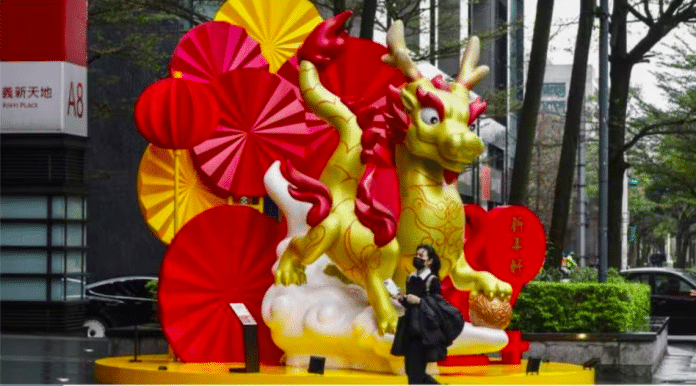With the arrival of February 10th, 2024, the Chinese New Year ushered in the Year of the Dragon, bringing with it traditions, reunions, and anticipation for the year ahead. Here are 8 facts about the Year of the Dragon that you may not know.
The Chinese New Year, which follows the lunar calendar, falls on Saturday, February 10th this year. Each year is associated with a Chinese zodiac sign, and in 2024, it is the year of the dragon.
The Chinese New Year signifies a period for introspection, family reunions, and anticipation for the year ahead, prompting numerous individuals to embark on long journeys to be with their loved ones.
8 Facts About Year of the Dragon 2024
- The Chinese New Year, also known as the “Spring Festival,” heralds the onset of spring and the departure of winter.
- The Chinese New Year date is determined by the lunar calendar and typically falls between January 21st and February 20th.
- Chinese New Year festivities typically span 16 days, from New Year’s Eve to the Lantern Festival, occurring on February 24th this year.
- Each Chinese New Year is represented by a zodiac sign, with 12 animals in total: rat, ox, tiger, rabbit, dragon, snake, horse, sheep, monkey, rooster, dog, and pig.
- 2024 is the Year of the Dragon, following the Year of the Rabbit in 2023 and preceding the Year of the Snake in 2025.
- Traditionally, during the initial five days of the Chinese New Year, it is customary not to dispose off garbage. This practice stems from the belief that the accumulated refuse symbolizes wealth and should therefore not be discarded. On the sixth day, a cleaning ritual is observed, and the garbage is then disposed.
- The Chinese New Year is ushered in with a fireworks display on New Year’s Eve. According to Chinese mythology, it is believed that on Lunar New Year’s Eve, a creature named Nian would emerge to prey on living beings. Fireworks are employed to frighten Nian away and safeguard the community.
- Numerous lucky dishes are savored during the celebrations, with particular emphasis on dumplings, associated with wealth and prosperity. It is believed that consuming more dumplings during the festivities leads to greater prosperity in the coming year.













